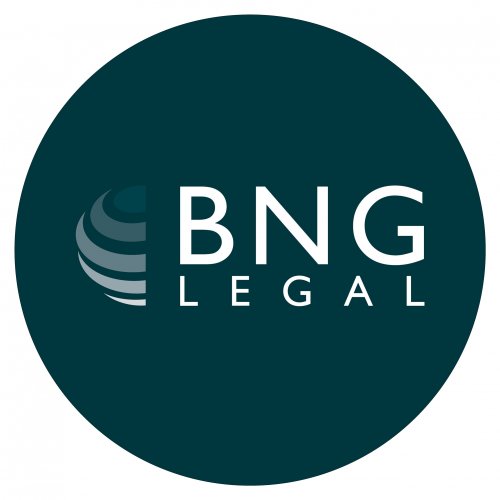Best Land Use & Zoning Lawyers in Cambodia
Share your needs with us, get contacted by law firms.
Free. Takes 2 min.
Free Guide to Hiring a Real Estate Lawyer
Or refine your search by selecting a city:
List of the best lawyers in Cambodia
About Land Use & Zoning Law in Cambodia
Land use and zoning laws in Cambodia are governed by a mix of statutory regulations, government policies, and customary practices. These laws regulate how land can be used and developed, ensuring sustainable development and environmental preservation. The legal framework is aimed at promoting orderly development in urban and rural areas, addressing issues such as property rights, environmental protection, and infrastructure planning. With rapid urbanization and economic growth, Cambodia has been updating its land use policies to accommodate both the needs of its citizens and investors.
Why You May Need a Lawyer
There are several situations where individuals and organizations may require legal assistance in the field of land use and zoning in Cambodia:
- When purchasing or leasing land for development or agricultural purposes, legal advice can help navigate the documentation and compliance requirements.
- If you are involved in a dispute over land boundaries, zoning violations, or property rights, a lawyer can represent your interests and provide legal recourse options.
- Filing for zoning permits or changes can be complex and may require professional assistance to ensure adherence to local regulations.
- Resolution of disputes related to land conversion, such as agricultural land being developed for commercial use, often requires a legal understanding of both rights and obligations.
- Legal counsel is crucial when dealing with government agencies or investing in large projects that may impact the environment or local communities.
Local Laws Overview
The land use and zoning laws in Cambodia are primarily guided by the Land Law of 2001, which provides a comprehensive framework for land ownership, use, and development. Key aspects include:
- Property Rights: Cambodia recognizes public, private, communal, and collective ownership rights, each with specific legal protections and obligations.
- Zoning Regulations: These are classified into categories such as residential, commercial, agricultural, industrial, and conservation zones, each with unique guidelines for land use.
- Land Registration: A formal system for registering land ownership to provide legal certainty and protection against illegal appropriation.
- Environmental Protection: Laws and regulations to ensure sustainable development by assessing environmental impacts before any major land conversions.
- Dispute Resolution: Mechanisms, including mediations and court proceedings, to resolve land-related disputes.
Frequently Asked Questions
What is the process for changing the zoning classification of my land?
To change the zoning classification, you need to apply to the local land authority, providing justifications for the change. The process involves review and approval by various governmental departments and can be time-consuming.
Can foreigners own land in Cambodia?
Foreign nationals are not allowed to own land outright in Cambodia. However, they can own property through a landholding company or lease agreements for up to 50 years, which is renewable.
What should I do if I have a boundary dispute with my neighbor?
It is advisable to consult with a lawyer and gather all relevant documents, including land titles. Mediation is often a first step, but legal action can be pursued if mediation fails.
How can I verify the legal status of a land title?
The Ministry of Land Management, Urban Planning and Construction provides services to verify and confirm the legal status of land titles. Engaging a local lawyer can assist in this process.
Are there restrictions on converting agricultural land to residential use?
Yes, converting agricultural land to residential or other uses normally requires government approval. There are strict procedures to assess environmental and social impacts.
What is the penalty for violating zoning laws in Cambodia?
Penalties for zoning law violations can include fines, orders to cease development, and legal proceedings. Severe violations could result in the confiscation of property.
Who do I contact for issues related to land use disputes?
Local government offices, district land offices, or the Ministry of Land Management, Urban Planning and Construction can be contacted for land dispute matters, often with the help of a lawyer.
Is compensation available for land that has been compulsorily acquired by the government?
Yes, there are provisions for compensation if the land is legally acquired by the government for public use. The process and adequacy of compensation can often be contested.
How does the environmental assessment process work for new developments?
Any major land development project must conduct an Environmental Impact Assessment (EIA), which assesses potential impacts and proposes mitigation strategies. Approval from relevant ministries is required.
What role do local communities play in land use decisions?
Local communities often have a say in land use decisions, especially in areas involving communal or indigenous lands. Community consultations are a part of the zoning change and land allocation process.
Additional Resources
For further assistance and information, the following resources may prove helpful:
- Ministry of Land Management, Urban Planning and Construction: The central authority for land use policies and regulation enforcement in Cambodia.
- Office of Land Dispute Resolution: Provides services for mediation and resolution of land disputes.
- Local Bar Associations: Offer directories of lawyers specialized in land use and zoning laws.
- NGOs: Organizations like Housing Rights Task Force (HRTF) and Sahmakum Teang Tnaut (STT) offer advocacy and support related to land rights and development.
Next Steps
If you require legal assistance in land use and zoning in Cambodia, it is advisable to first consult with a qualified lawyer who specializes in this field. Prepare all necessary documents, including land titles, contracts, and correspondences, to discuss during your initial consultation. Consider engaging with local land management authorities or community leaders if your issue involves local matters. Understanding your legal rights and obligations is key before taking any action related to land use and zoning.
Lawzana helps you find the best lawyers and law firms in Cambodia through a curated and pre-screened list of qualified legal professionals. Our platform offers rankings and detailed profiles of attorneys and law firms, allowing you to compare based on practice areas, including Land Use & Zoning, experience, and client feedback.
Each profile includes a description of the firm's areas of practice, client reviews, team members and partners, year of establishment, spoken languages, office locations, contact information, social media presence, and any published articles or resources. Most firms on our platform speak English and are experienced in both local and international legal matters.
Get a quote from top-rated law firms in Cambodia — quickly, securely, and without unnecessary hassle.
Disclaimer:
The information provided on this page is for general informational purposes only and does not constitute legal advice. While we strive to ensure the accuracy and relevance of the content, legal information may change over time, and interpretations of the law can vary. You should always consult with a qualified legal professional for advice specific to your situation.
We disclaim all liability for actions taken or not taken based on the content of this page. If you believe any information is incorrect or outdated, please contact us, and we will review and update it where appropriate.
Browse land use & zoning law firms by city in Cambodia
Refine your search by selecting a city.










